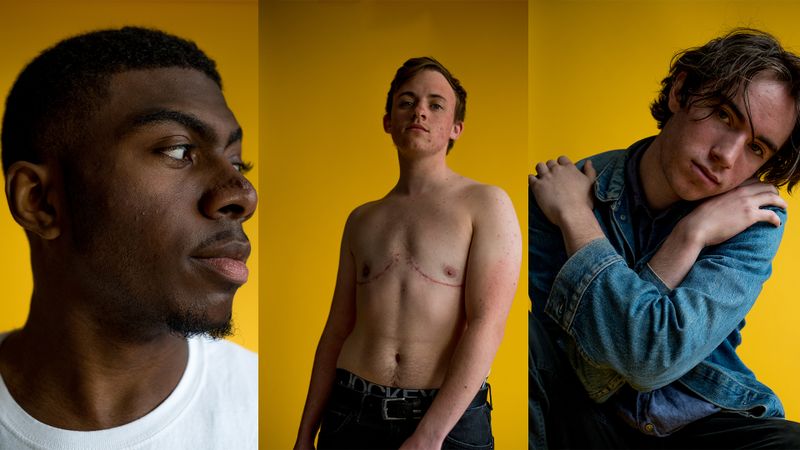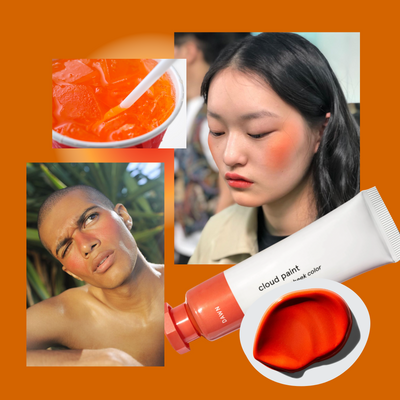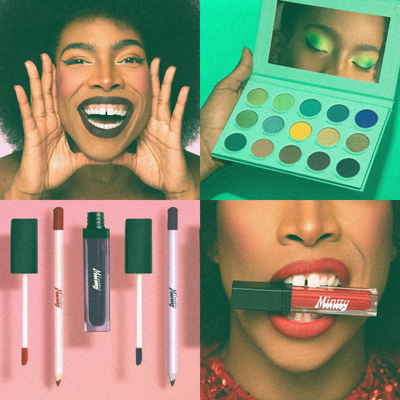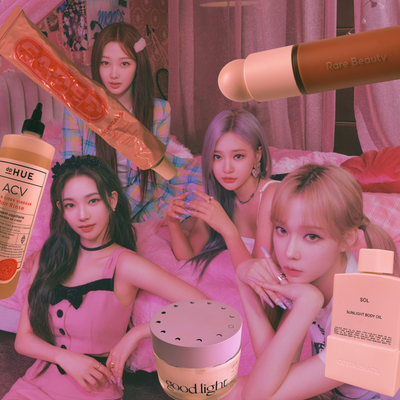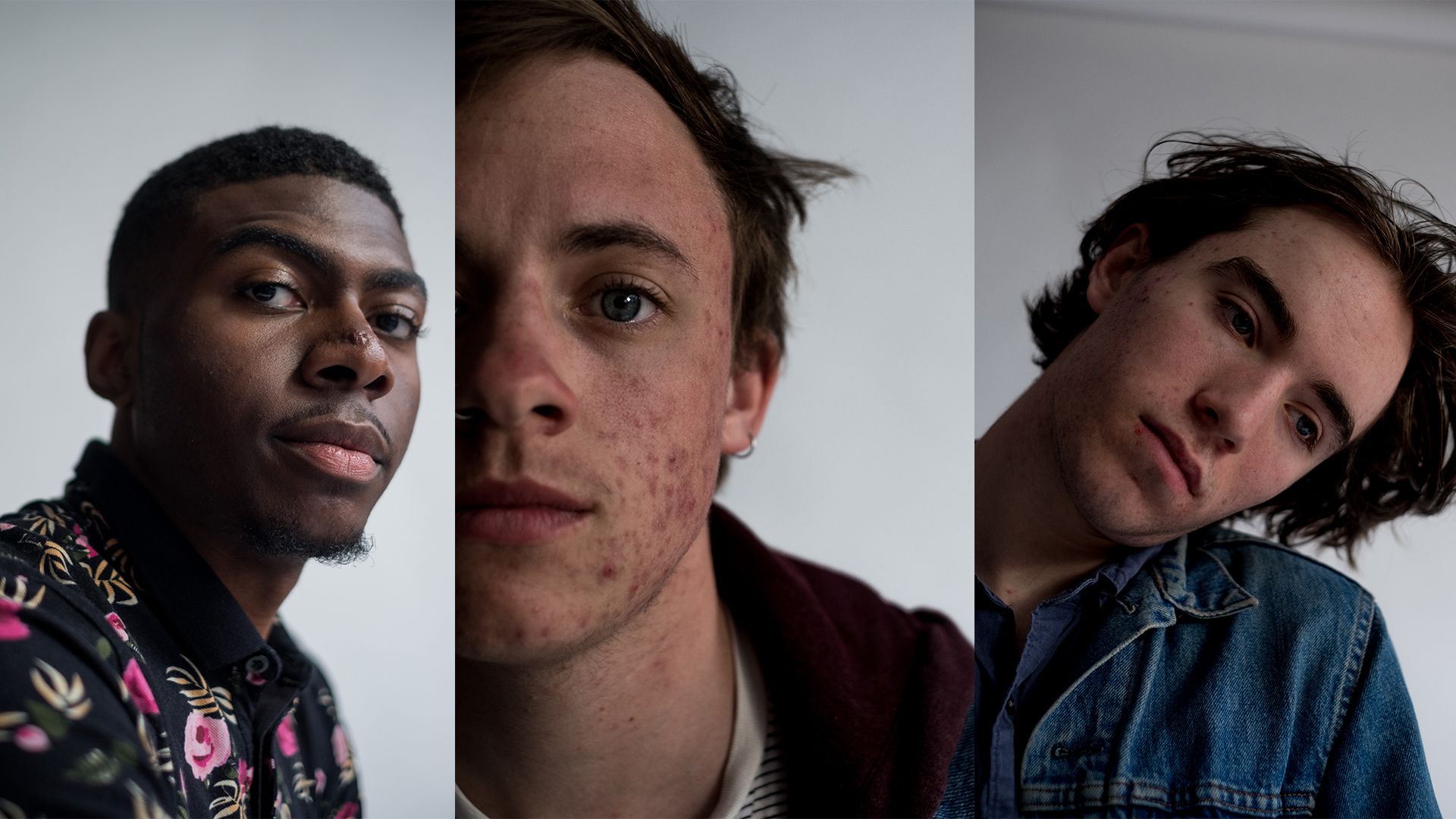
Beauty isn’t just skin deep.
It comes in all shapes, colors, gender identities and more. In the past few years, we’ve seen examples of this message embraced by the beauty industry. Examples include: Glossier’s body positivity Body Hero Campaign, Fenty Beauty’s inclusive staple shade range, and our own collaboration with Milk Makeup celebrating gender identity for Blur The Lines. It’s important, as we know beauty isn’t one note.
But why is it that in 2018 we’re still iffy when it comes to acne? Why is it that “imperfect” skin is seen as less than? Why do we obsess over banishing these spots, blemishes, and pimples when they’re a natural part of us?
SEE ALSO: Why is everyone suddenly talking about gender?
These are questions we need to answer, especially as we talk about mental health awareness. There’s a major correlation between acne shame and self-harm. Studies found that young people with acne had a higher rate of developing depression, and teens cited weakened self esteem as the biggest impact acne had on them. A study published in the British Journal of Dermatology looked at the records of over 2 million men and women — 134,427 with acne; 1,731,608 without — over 15 years. The study concluded that the chance of developing major depression was 18.5% higher from patients with acne. The risk for depression was strongest in the first five years after an acne diagnosis. A study by the British Skin Foundation found that three out of five teenagers surveyed said that the biggest impact acne has on their lives is a fall in self-confidence.
“I realized that acne for me wasn’t something I needed to worry about.”
For most people, acne is completely normal. According to statistics by AcnEase, 60 million people in the U.S. have acne or have experienced it at one point. This number includes all grades of acne, from mild to cystic, and of those 60 million, 20% have some form of acne bad enough that it results in scarring. The same research noted how 85% of people surveyed say they have experienced acne in some form at some point in their lives, which makes for a whopping majority.
For an original editorial for Very Good Light, we wanted to redefine these standards and find the beauty in blemishes. We spoke to five guys who experience acne in some form to talk about their blemishes, their beauty marks and how they’ve come to terms with embracing themselves inside and out.
Peter Coronato, 19
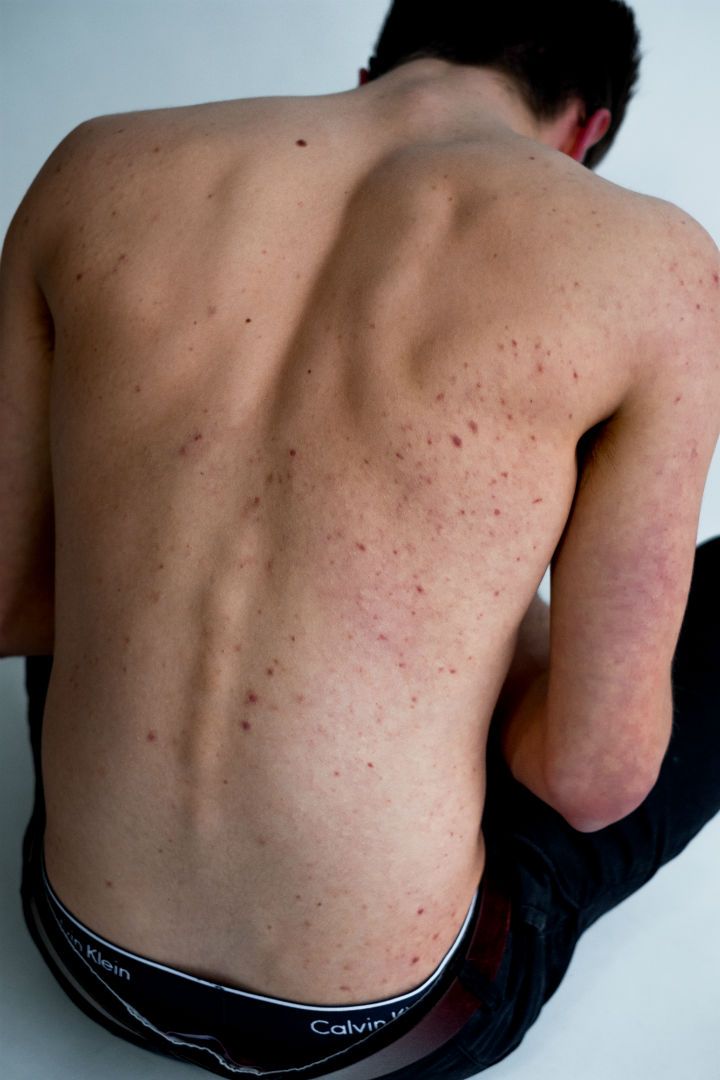

“I almost want to call it a rejuvenation,” says Peter Coronato, a 19-year old from Burlington, VT. “Before starting college I learned to accept the person I was before and wanted to continue to accept the person I was becoming. I realized that acne for me wasn’t something I needed to worry about.”
Learning to embrace what has been taught to be our “imperfections” as something beautiful is difficult, Peter says. But he’s come to terms with his own natural skin – his back full of acne, his face that isn’t blemish-free.
“If someone was going to judge me on my skin, it was petty. I don’t think people should judge anymore, because everyone has gone through it. There’s no room to judge.”
Anthony Mahon, 21
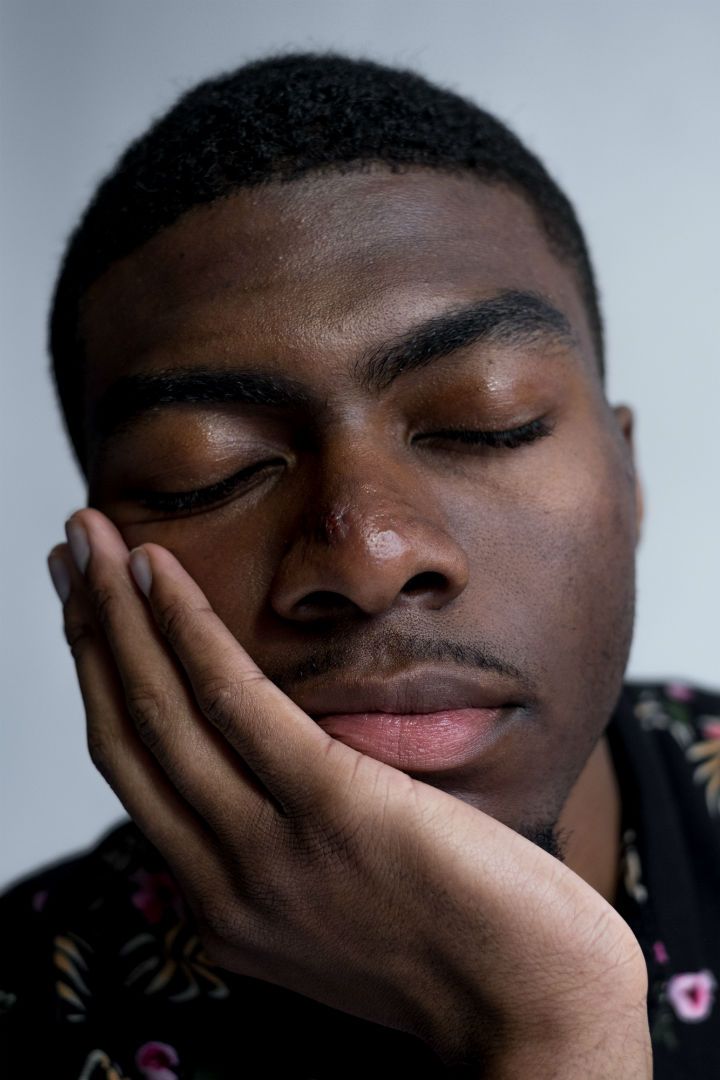
“I got discouraged. I tried everything, but I still was left wondering why these remedies that work for other people weren’t working for me.”
“I was my own worst enemy,” says Anthony Mahon. “It was a personal thing where one day I just looked in the mirror and realized I shouldn’t be putting myself down anymore.”
Clay masks, tea tree oil, exfoliating, benzoyl peroxide, salicylic acid, Anthony says he tried it all. Nothing seemed to work. “I got discouraged. I tried everything, but I still was left wondering why these remedies that work for other people weren’t working for me,” says Anthony. “As much as I’ve wanted to change my appearance or change the way my face looked, I had to learn that it’s all about being comfortable in our own skin… as corny as that sounds.”
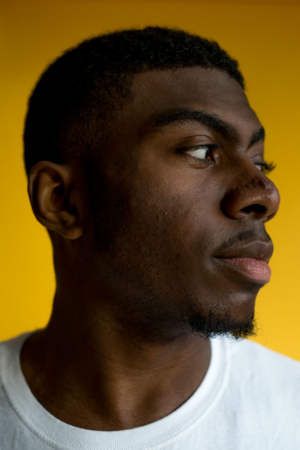
“I think in media we’ve been breaking boundaries and seeing way more general acceptance than what we were seeing 10 or 20 years ago in regards to racial stereotypes and gender norms,” Anthony tells Very Good Light. “People are learning to accept those for who they are. There’s more of a need to have a sense of representation for people so we’re all able to feel liberated and accepted in our communities, whether that’s local, national, or global.
“Acceptance and tolerance isn’t a one-person movement, it takes a movement of many to spark a change. There should be more representation for people with acne,” he says. “You know, you watch any T.V. show or movie, it doesn’t matter when it came out, and it shows people so powdered with makeup that their real self isn’t even showing through. That’s not to knock people who wear makeup on a daily basis, but as someone with acne, it was discouraging to see celebrities with perfect skin. Perception is everything, especially to young people.”
Caleb Weathers, 21
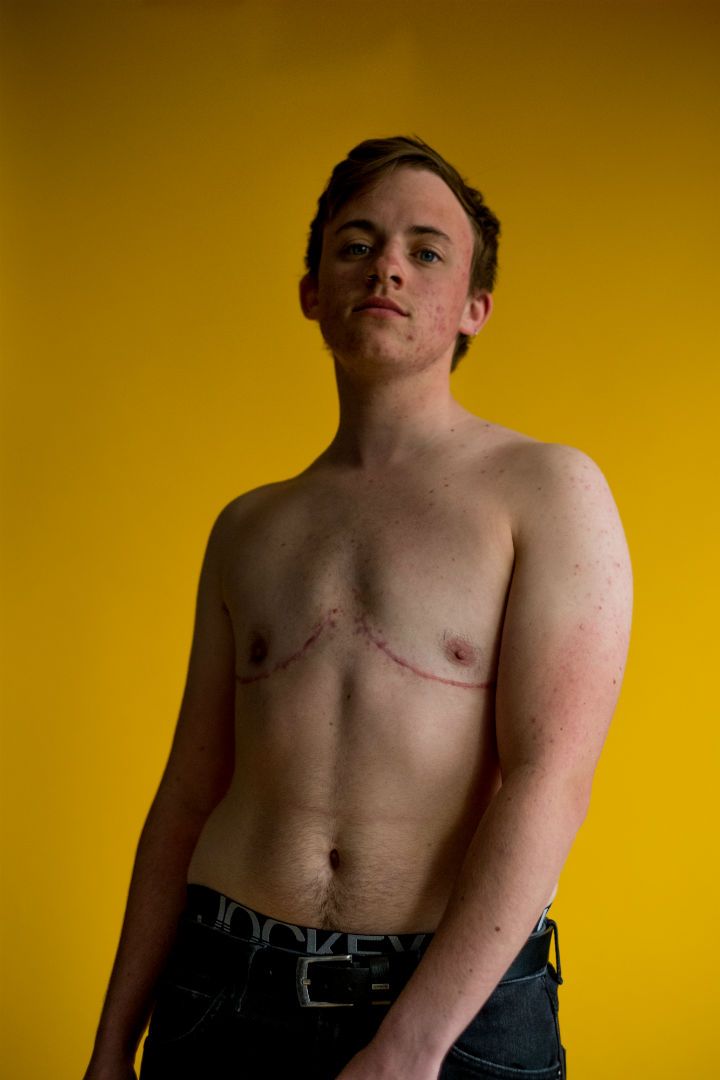
“I never really had acne growing up or as a teenager,” says Caleb Weathers. “But being transgender, as soon as I started taking hormones I noticed my acne really starting to flare up.”
Caleb is a 21-year-old junior at the University of Vermont. Over the last two years, Caleb has begun his transition in the pursuit to feel more comfortable in his skin. However, it came with a list of challenges. “You know, I’m in my 20’s now and my acne is full-on all over my face. I knew the territory going into transitioning, but I wasn’t really prepared for how it would affect my life,” Caleb tells us. “This decision started with me accepting that I love myself, I’m going to continue loving myself no matter what and become even more comfortable with who I am through this choice. But with going through this journey I became less comfortable. I wanted to hide, I hated it so much. I wanted to ignore it, but it was hurting my face, it was hurting my life, it was hurting everything. I decided I needed to do something about it.”
“It was a hard thing to accept. I started to second guess things. This skin wasn’t mine anymore, but in some ways, it was more than ever.”
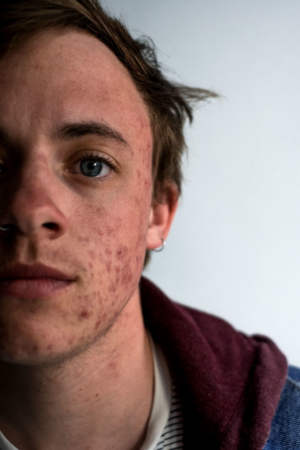
The emotional effects of acne are those that shouldn’t be ignored. Your feelings are valid, and you are not alone. If you need help, reach out. “I’m inspired by the transition from winter to spring,” Caleb tells us. “Spring will always come. The sun will always come. No matter how cold and gray and long your winter has been, better days are always ahead. Seeing all the new sprouts and flowers grow up is beautiful. That can be you, you can always start again.”
Jackson Glover, 19
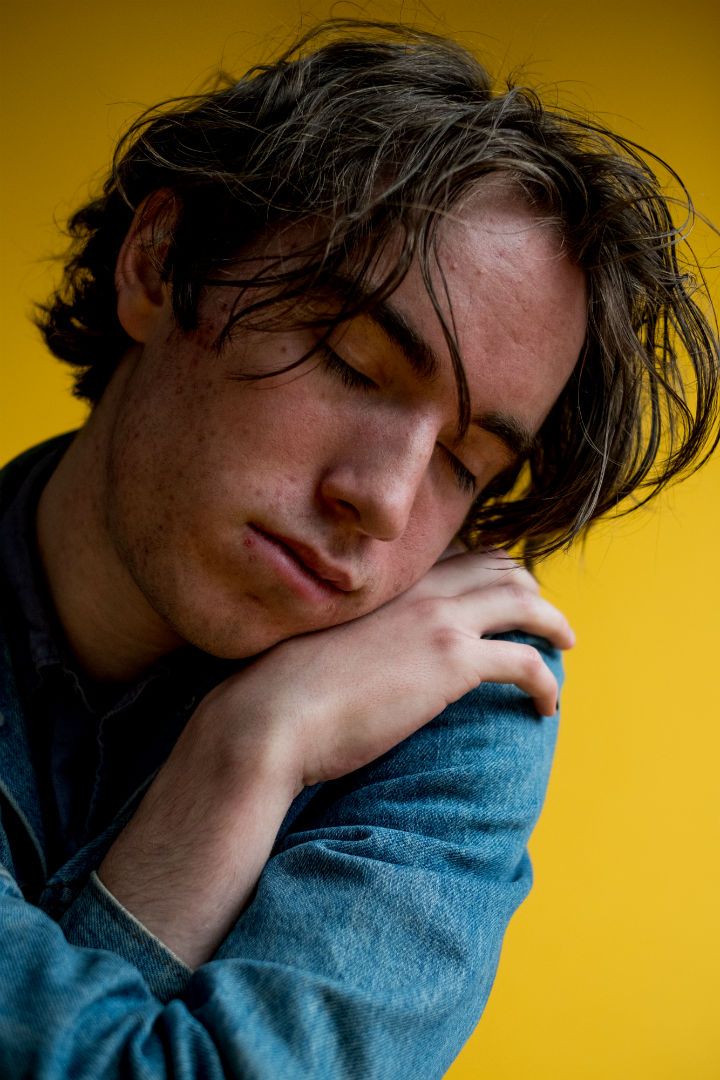
“I didn’t like it, but I didn’t let it define me.”
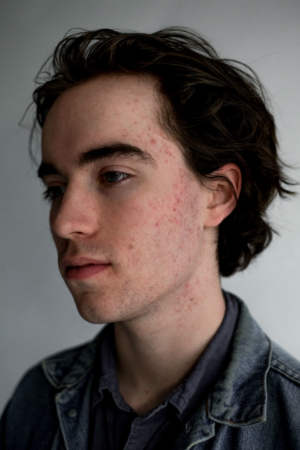
For Jackson, his skin just makes him, well, him. “I mean, it’s a bummer when you start to get it [acne],” he tells us. “I didn’t like it, but I didn’t let it define me.”
“When I got to high school I started looking up to people that weren’t necessarily apart of the mainstream culture. Representation is really important. I’m inspired by people that don’t mind being a little greasier. They don’t worry about things too much. That’s how I’ve always looked at acne, it shouldn’t matter.”
Self-care isn’t always facemasks and bubble baths. It looks different for us all. Taking even a moment out of your day to focus on something that makes you feel good can make a world of difference. “Most of the things that make me feel good aren’t tied up with my body,” Jackson tells us. “I like to play music and hang out with friends and go skating. That’s when I feel my best and most comfortable.”
“There’s no point in hiding it. Someone is going to see it eventually,” he says. “Growing up with bacne (back acne) I mean sure, I was insecure, but what was I supposed to do? Keep my shirt on forever? There’s no point in prolonging the illusion. We are who we are.”
Julen De Zubiaurre, 19
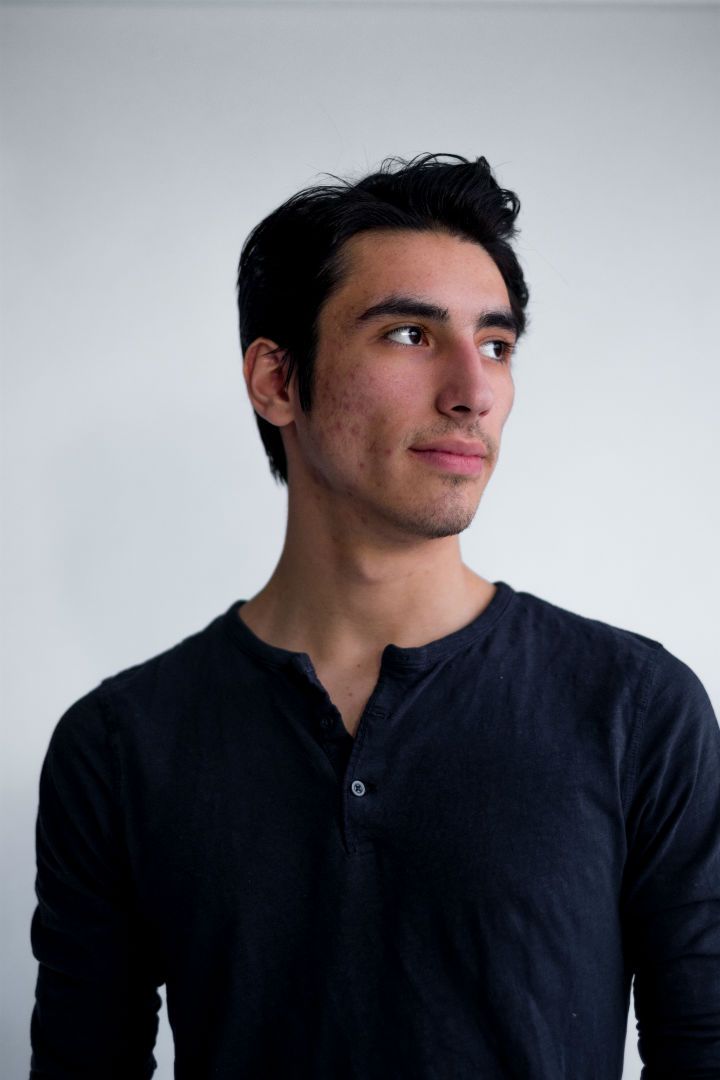
“I had an outlet to put positive energy into. Slowly, the negatives just stopped mattering as much to me.”
“You have to accept the negatives. Once you do everything becomes easier,” Julen, a 19-year old says. “Growing up in middle school I noticed everyone had a bunch of acne. I thought it was gross, but when I started to get it I realized how frustrating it was. I felt bad. It’s natural and not defining of a person at all.
“I was down on myself, but I had positive things in my life going on as well. I kickbox and when you’re competing you have to wear a helmet that covers your face. I didn’t worry about what I looked like, I just performed. It was something for me to focus on and succeed in. I had an outlet to put positive energy into. Slowly, the negatives just stopped mattering as much to me.”
When it comes to living in the digital world, there is plenty to be wary of. “I’m not really involved with social media, In my opinion focusing on that doesn’t help with self-image.” Advice for those learning to gain self-confidence and acceptance? “Learn the distinction of what’s being sold to you and being what’s given to you.” It can make a huge difference to how you look at yourself and the world around you.

